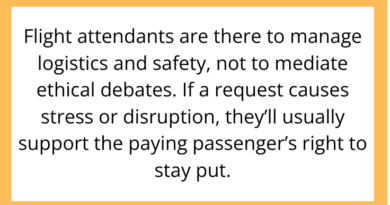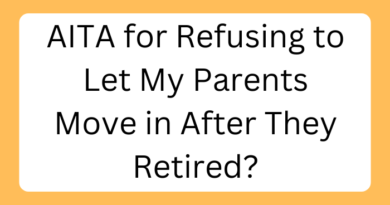AITAH for Kicking My Best Friend Out After She Brought Her Dog to My Allergy-Friendly Wedding Venue?
Last night, I came across a viral post on r/AITAH that immediately divided thousands of readers. The poster asked if they were wrong for asking their best friend to leave their wedding reception because she ignored strict venue rules—and OP’s severe dog allergies—by bringing her pet anyway.
This scenario quickly turned into an online referendum on friendship, respect, and boundaries. Was OP heartless for enforcing the rules on their big day, or were they justified in protecting their health and plans? Let’s break it down.
What Really Happened?

The original poster (OP) explained that they have a life-threatening dog allergy. When choosing a wedding venue, they specifically selected a location that enforces a no-pets policy (with exceptions only for certified service animals).
OP shared the policy and their health limitations with guests multiple times in the months leading up to the wedding. Everyone seemed understanding—until OP’s best friend arrived with her dog in tow.
The friend insisted the dog was an “emotional support animal,” but she did not have formal certification and could not produce documentation when the venue manager asked. As OP started to have allergy symptoms, they reluctantly told their friend she had to take the dog home or leave.
The friend chose to leave in anger. Later, she sent OP a long message accusing them of humiliation, ableism, and prioritizing their own comfort over her mental health.
Health vs. Emotional Needs: Who Comes First?

When Allergies Are Life-Threatening
Many people in the thread empathized with OP’s frustration. Severe allergies can quickly escalate from discomfort to emergency situations. OP’s right to a safe environment—especially on their wedding day—was, in their view, non-negotiable.
From this perspective, the friend’s decision to ignore clear instructions wasn’t just inconsiderate—it was reckless. Multiple commenters argued that no one should expect others to risk their health, especially after clear communication about medical needs.
The Role of Emotional Support Animals
Others pointed out that while emotional support animals provide critical comfort for many people, they don’t carry the same legal status as trained service animals. In most states and venues, emotional support animals don’t automatically get public access rights.
OP’s friend may have felt genuinely anxious or unsafe without her dog. But by refusing to plan ahead, bring documentation, or discuss accommodations in advance, she put OP in an impossible position.
Navigating Conflict in Close Relationships

When Boundaries Get Tested
One of the most challenging aspects of this story is that it involved two people who clearly cared about each other. Weddings are emotionally charged events, and stress can magnify every decision.
Still, many commenters agreed that OP’s boundary was reasonable, and enforcing it did not make them a bad friend. In fact, some felt the friend was unfairly using guilt to deflect from her own disregard for OP’s health.
Was There Another Way?
A few people proposed that OP could have offered a compromise—like having the dog wait in the car briefly while someone supervised. Others felt that with OP’s severe allergy symptoms already starting, that option wasn’t realistic or safe.
Ultimately, this wasn’t just about one wedding day. It was about whether OP’s health was less important than their friend’s emotional needs—and who gets to decide which needs take priority.
What Makes an AITAH Scenario So Polarizing?

This story highlights why AITAH posts often spark such passionate debate. Every reader brings their own experience with boundaries, health issues, and friendships. Some see OP’s actions as protective and justified; others view them as overly rigid or insensitive.
But if there’s one takeaway, it’s that clear communication and respect for medical realities are essential—especially in high-stakes situations like weddings.
Final Thoughts

In the end, only OP and their friend can decide if this conflict is repairable. But the overwhelming response suggests that most people believe your right to a safe, allergy-free environment trumps someone else’s preference to bend the rules.



